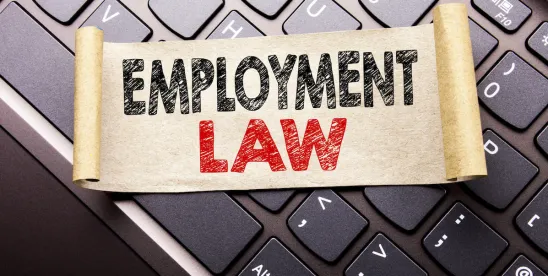- The U.S. Supreme Court raised the standard a U.S. district court must apply when analyzing the propriety of a 10(j) injunction. No. 23-367 (June 13, 2024). The decision requires courts to use a four-part test when evaluating whether to grant a preliminary injunction at the request of the National Labor Relations Board’s regional offices pending litigation of a complaint under the National Labor Relations Act. Courts have been split on which test should apply: the four-part test used in traditional litigation settings, a more lenient two-part test, or a hybrid of the two. The Court ruled the traditional litigation standard should apply. A party seeking injunctive relief must “make a clear showing” that: (1) it is likely to succeed on the merits; (2) it is likely to suffer irreparable harm in the absence of preliminary relief; (3) the balance of equities tips in his favor; and (4) an injunction is in the public interest. This will raise the Board’s burden of proof and create more consistency across district courts at a time employers increasingly face injunction requests initiated by the Board’s general counsel.
- The U.S. Supreme Court overturned the Chevron doctrine of judicial deference to a federal agency’s interpretation of an ambiguous statute. Loper Bright Enters. v. Raimondo, and Relentless, Inc. v. Department of Commerce, Nos. 21-5166/22-1219 (June 28, 2024). While Chevron deference provided that federal courts will defer to all federal agencies, deference to Board action predates this doctrine. Thus, the Court’s decision does not directly address deference to Board decisions and rulemaking. However, given the Court’s clear pronouncement that administrative agencies are not due special deference, it would appear that Board cases will be subject to increased scrutiny. As a result, labor law may have to reorient around the best reading of the Act’s language and Supreme Court precedent. The immediate impact on the Board may be clear shortly as the Board defends some of its latest rulemaking, including its 2023 joint-employer standard and its new precedent outlining when bargaining orders may be issued to circumvent a union election. Long-term, the Court’s decision may have additional effects, including stabilizing the administration of federal labor law, increasing diligence in developing new regulations, and promoting adherence to statutory text rather than new rules and modified precedent depending on the makeup of the Board that make legal compliance more difficult.
- The Board ordered a Las Vegas casino operator to bargain with a UNITE HERE affiliate despite the union’s election loss. NP Red Rock LLC d/b/a Red Rock Casino Resort Spa, No. 28-CA-244484 (June 17, 2024). The Board found NP Red Rock LLC committed numerous acts of unlawful coercive conduct during the union’s organizing campaign (including threatening employees with job loss) that likely impacted the election. The Board therefore issued a first bargaining order under the longstanding Gissel standard because of the company’s “pervasive and egregious misconduct.” However, it also issued a second, alternative bargaining order under a precedent-shifting 2023 decision that provided a new framework for when employers must recognize a union following unfair labor practices that warrant setting aside an election. The decision marks the first time the Board has issued such an order. NP Red Rock will have to recognize the union and engage in collective bargaining negotiations.
- Former Board Chairman John F. Ring testified before a U.S. House of Representatives committee criticizing the current Board’s modification of precedent contrary to the intent of the Act. In his testimony before the Subcommittee on Health, Employment, Labor, and Pensions, within the Committee on Education and the Workforce, Ring asserted that the current Board has “lost its way,” attempting to “rewrite the Act to facilitate unionization at the expense of individual employee rights and employer interests.” Referencing the Obama-era Board, which overturned years of precedent in order to tip the balance in favor of unions, he argued that the Board majority and general counsel are pursuing an even more aggressive agenda. Ring discussed recent court decisions that have rejected the Board’s decisions, as well as the Board’s “extreme” policy agenda, which includes changes to union organizing, bargaining orders, and protection of offensive speech in the workplace. He also highlighted recent Board decisions that overturned cases from his tenure as chairman, which he argued allow unacceptable workplace conduct and create conflicts with other federal agencies.
- The Board announced the closure of the Division of Judge’s New York City office, effective July 15, 2024. The Board cited the retirement of the New York City office’s Associate Chief Administrative Law Judge Kenneth W. Chu, as well as the staff’s decreased need for physical office space. The administrative law judges and staff assigned to the office will continue processing cases from Regional Offices 2 (Manhattan), 22 (Newark), and 29 (Brooklyn), but they will be administratively reassigned to the Board’s Washington, D.C. office. The D.C. office will begin docketing and processing cases from those regions following the New York City office’s closure.
Top Five Labor Law Developments for June 2024
Tuesday, July 16, 2024
Current Public Notices
Published: 28 August, 2025
Published: 25 August, 2025
Published: 25 August, 2025
Published: 25 August, 2025
Published: 25 August, 2025
Published: 22 August, 2025
Published: 20 August, 2025
Published: 20 August, 2025
Published: 18 August, 2025
Published: 18 August, 2025
Published: 15 August, 2025
Published: 14 August, 2025
Published: 12 August, 2025
Published: 11 August, 2025
Published: 8 August, 2025







 />i
/>i
